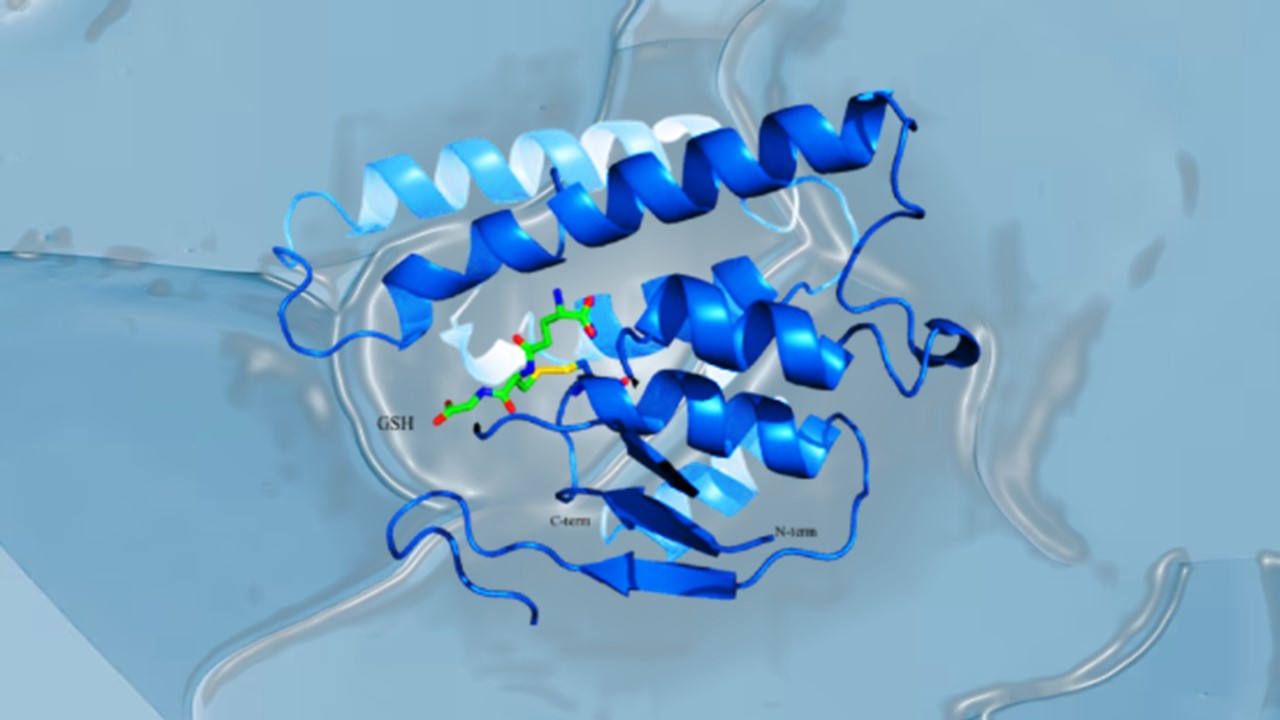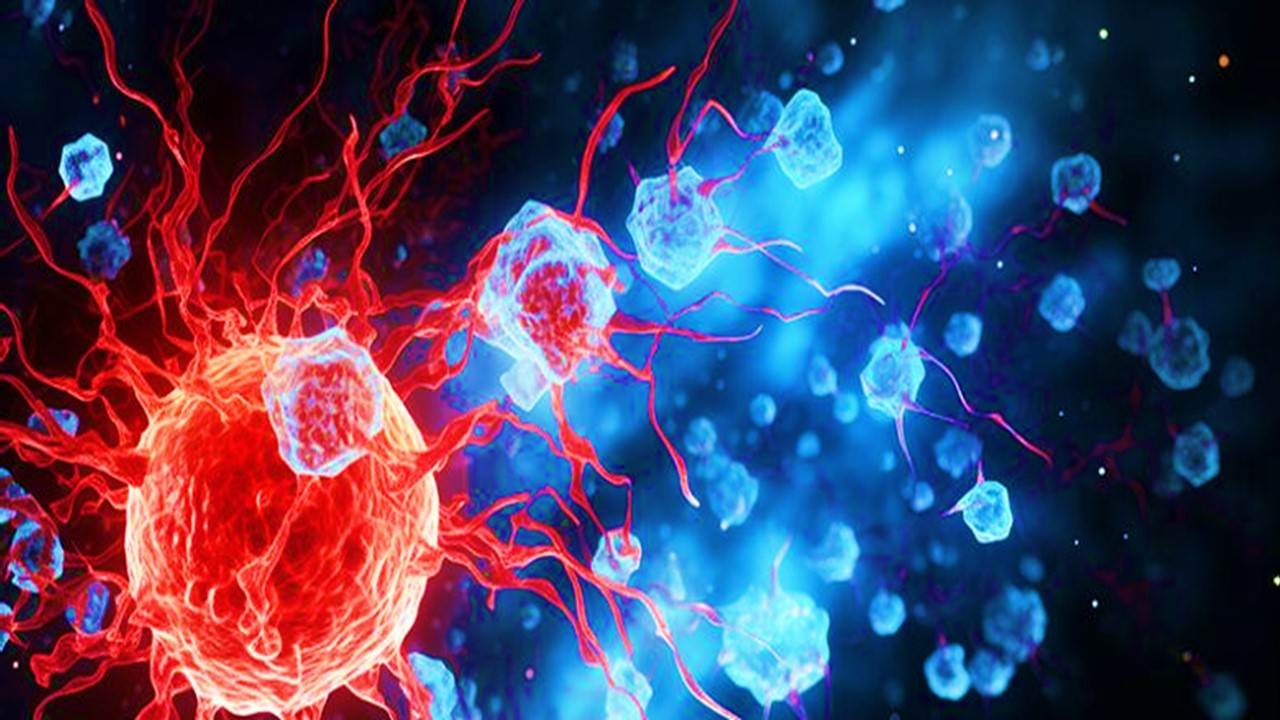The ALK Dilemma: A Complex Target in Lung Cancer
Anaplastic lymphoma kinase-positive non-small-cell lung carcinoma (ALK-positive NSCLC) represents a unique subset of lung cancer, with intricate genetic mechanisms driving its aggressive progression. The ALK rearrangement, a fusion of the ALK gene with other partner genes like EML4, creates an oncogenic protein that promotes uncontrolled cell growth. This fusion is more common in younger, non-smoking individuals, contrasting with the traditional demographic of lung cancer patients. The molecular profile of ALK-positive NSCLC contributes to its high metastatic potential, particularly to the brain, which complicates treatment and reduces survival.
Despite advancements, the prognosis for ALK-positive NSCLC remains challenging. Current therapies have primarily focused on targeting the fusion protein, with first-generation ALK inhibitors like crizotinib leading the charge. While crizotinib showed initial promise with notable response rates, its inability to sustain long-term progression-free survival (PFS) due to acquired resistance has necessitated a shift toward more advanced inhibitors. Addressing both systemic disease and CNS metastases requires therapies capable of penetrating the blood-brain barrier while maintaining robust systemic activity.
Envonalkib represents a significant leap forward. As a second-generation ALK inhibitor, it not only targets the primary ALK fusion protein but also demonstrates activity against known resistance mutations. These capabilities make it a critical addition to the arsenal against ALK-positive NSCLC, particularly in patients who develop resistance to earlier therapies. However, the growing understanding of the heterogeneity within ALK-positive tumors underscores the need for therapies that can address this biological complexity.
Envonalkib: A Paradigm Shift in Progression-Free Survival
In this pivotal phase III trial, envonalkib demonstrated a striking ability to delay disease progression. With a median PFS of 24.87 months compared to 11.60 months for crizotinib, envonalkib effectively doubles the time patients can live without disease advancement. This finding is particularly significant in light of previous studies showing a median PFS of around 12 months for first-generation inhibitors, marking envonalkib as a game-changer in the therapeutic landscape.
The consistency of these results across diverse patient subgroups further solidifies envonalkib’s efficacy. Notably, even patients with poorer baseline performance status or older age, traditionally associated with worse outcomes, experienced meaningful benefits. This resilience highlights envonalkib’s broad applicability and its potential to serve as a frontline therapy for a wide spectrum of ALK-positive NSCLC patients. The study’s robust methodology, including independent review committee (IRC)-assessed outcomes, ensures the reliability of these findings.
Additionally, the extended PFS achieved with envonalkib holds profound implications for quality of life. Longer disease control translates to prolonged symptom-free periods, reduced need for additional treatments, and fewer disruptions to daily life. For patients with ALK-positive NSCLC, a condition often diagnosed in younger individuals, this extended stability allows for greater personal and professional fulfillment during treatment.
Overcoming the Blood-Brain Barrier: CNS Efficacy Redefined
CNS metastases have historically posed a significant challenge in ALK-positive NSCLC, with most systemic therapies struggling to cross the blood-brain barrier. Crizotinib, while effective systemically, has limited intracranial activity, leaving a gap in the management of CNS progression. Envonalkib addresses this critical issue head-on, showing remarkable efficacy in controlling CNS disease, as evidenced by a CNS objective response rate (CNS-ORR) of 78.95% in patients with baseline brain lesions, compared to 23.81% for crizotinib.
This ability to penetrate the blood-brain barrier and maintain activity in the CNS sets envonalkib apart from its predecessors. Patients with brain metastases not only experienced prolonged control of intracranial disease but also saw a significant reduction in the risk of new CNS lesions. In participants without baseline brain metastases, the incidence of developing such lesions during treatment was substantially lower with envonalkib, emphasizing its prophylactic potential against CNS progression.
These results redefine the standard of care for ALK-positive NSCLC with CNS involvement. Beyond improving survival, envonalkib offers a tangible improvement in neurological health and overall quality of life. By reducing reliance on local treatments like surgery and radiotherapy, which often carry significant risks and long recovery periods, envonalkib simplifies CNS management, allowing patients to maintain greater functional independence.
The Safety Equation: Potency Without Compromise
While potent efficacy is critical, safety remains a cornerstone of any successful cancer therapy. Envonalkib balances these priorities effectively, demonstrating a manageable safety profile. The most common treatment-related adverse events (TRAEs) included gastrointestinal symptoms such as diarrhea, vomiting, and nausea, along with elevated liver enzymes. These adverse events, though frequent, were generally mild to moderate in severity and managed effectively through dose adjustments and supportive care.
Compared to crizotinib, envonalkib exhibited a slightly higher incidence of grade 3 or higher TRAEs (55.73% vs. 42.86%). However, the rate of permanent treatment discontinuation due to TRAEs was low, affecting only 6.11% of patients. Importantly, no deaths related to treatment were reported, highlighting envonalkib’s safety for long-term use. These findings are consistent with its phase I trial, which established its tolerability and paved the way for its advancement to phase III testing.
The ability to manage adverse events without compromising efficacy is particularly crucial in ALK-positive NSCLC, where patients often undergo extended treatment durations. Envonalkib’s safety profile ensures that its benefits are not overshadowed by intolerable side effects, allowing patients to maintain a good quality of life throughout their treatment journey.
Resistance Mechanisms: The Achilles’ Heel of ALK Inhibitors
As with all targeted therapies, the development of resistance remains a significant challenge for envonalkib. ALK-positive tumors are notorious for their adaptability, with resistance arising from secondary mutations in the ALK gene, activation of bypass signaling pathways, and other mechanisms. Envonalkib’s efficacy against known resistance mutations, such as L1152R and L1196M, positions it as a robust option for delaying resistance, but it is not immune to eventual therapeutic failure.
Understanding the molecular underpinnings of resistance is key to extending the efficacy of envonalkib. Future research should focus on identifying biomarkers that predict resistance onset, enabling earlier intervention with alternative or combination therapies. Additionally, preclinical studies suggest that combining ALK inhibitors with agents targeting complementary pathways could further enhance durability and delay resistance.
Envonalkib’s ability to maintain efficacy against common resistance mechanisms makes it a valuable tool in the ongoing battle against ALK-positive NSCLC. However, addressing the inevitable emergence of resistance will require a multifaceted approach, integrating molecular diagnostics, novel drug development, and personalized treatment strategies.
Future Directions: Toward Broader Clinical Impact
While this trial establishes envonalkib as a superior first-line therapy, its generalizability remains a point of consideration. The study exclusively enrolled Chinese participants, leaving questions about its efficacy and safety in diverse ethnic populations. Given the genetic and environmental factors that influence NSCLC progression and treatment response, further studies are needed to validate these findings globally.
Additionally, the immature overall survival data present an opportunity for extended follow-up studies to better understand the long-term impact of envonalkib. Combining envonalkib with other systemic therapies, such as immune checkpoint inhibitors or novel targeted agents, could further enhance its efficacy and broaden its applicability across various stages of NSCLC.
Envonalkib’s success also highlights the importance of innovation in drug development. By addressing the limitations of earlier therapies, it sets a benchmark for the next generation of ALK inhibitors. As research continues to uncover the complexities of ALK-positive NSCLC, envonalkib serves as a testament to the potential of precision medicine in transforming cancer care.
A New Frontier in ALK-Positive NSCLC Management
Envonalkib delivers a powerful combination of efficacy, CNS activity, and safety, positioning it as a groundbreaking first-line treatment for ALK-positive NSCLC. By doubling PFS, reducing CNS progression, and maintaining a manageable safety profile, it addresses critical gaps left by earlier therapies like crizotinib. As the fight against ALK-positive NSCLC evolves, envonalkib paves the way for a new era of targeted therapies, offering hope to patients and clinicians alike.
Study DOI: https://doi.org/10.1038/s41392-023-01538-w
Engr. Dex Marco Tiu Guibelondo, B.Sc. Pharm, R.Ph., B.Sc. CpE
Editor-in-Chief, PharmaFEATURES

Subscribe
to get our
LATEST NEWS
Related Posts

Immunology & Oncology
The Silent Guardian: How GAS1 Shapes the Landscape of Metastatic Melanoma
GAS1’s discovery represents a beacon of hope in the fight against metastatic disease.

Immunology & Oncology
Resistance Mechanisms Unveiled: The Role of Glutathione S-Transferase in Cancer Therapy Failures
Understanding this dual role of GSTs as both protectors and accomplices to malignancies is central to tackling drug resistance.
Read More Articles
Myosin’s Molecular Toggle: How Dimerization of the Globular Tail Domain Controls the Motor Function of Myo5a
Myo5a exists in either an inhibited, triangulated rest or an extended, motile activation, each conformation dictated by the interplay between the GTD and its surroundings.













